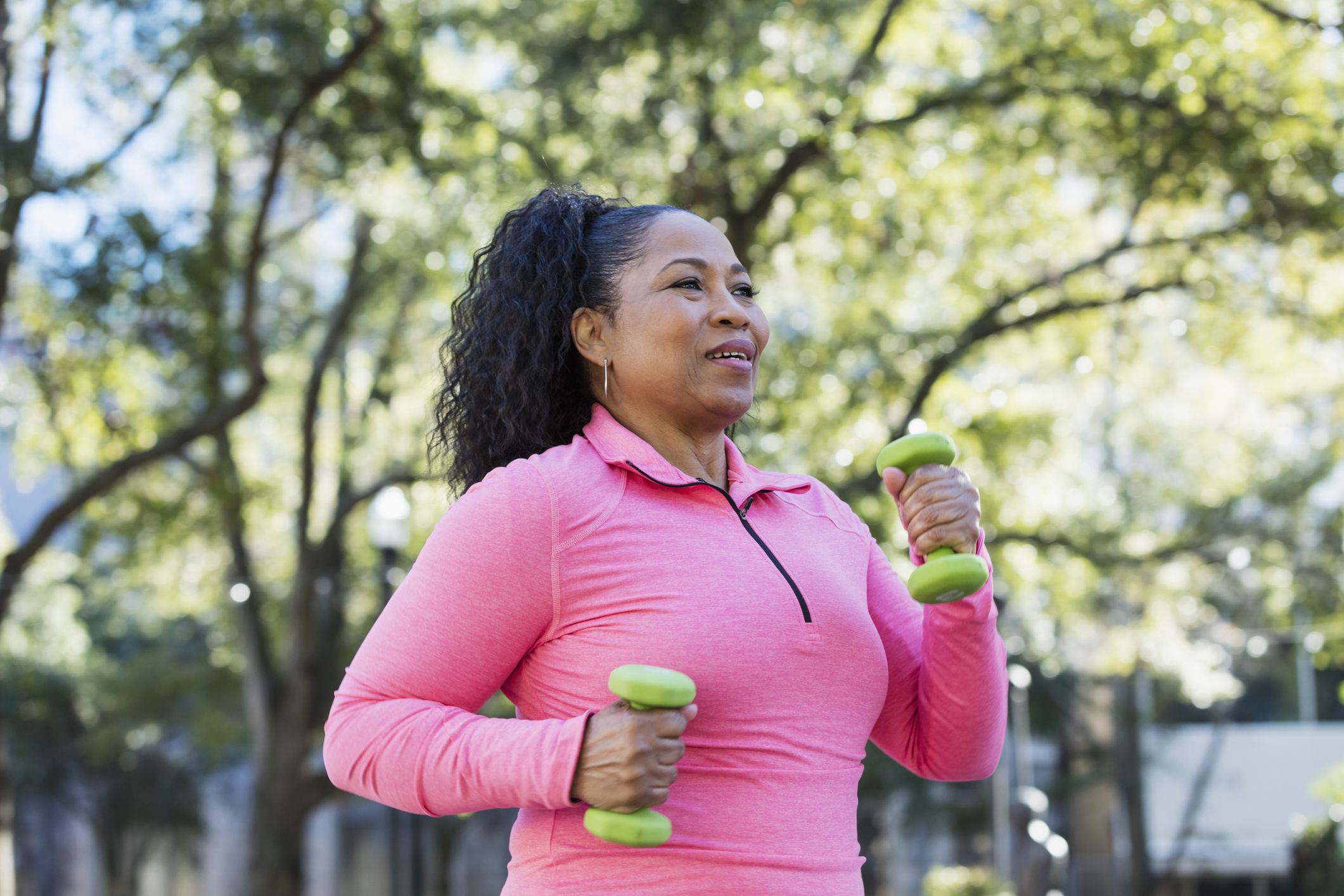Get Easy Health Digest™ in your inbox and don’t miss a thing when you subscribe today. Plus, get the free bonus report, Mother Nature’s Tips, Tricks and Remedies for Cholesterol, Blood Pressure & Blood Sugar as my way of saying welcome to the community!
‘Bar’ none — follow this tip to age best

If you want to age better — by better I mean ‘holding’ on to your strength so you can keep your independence and maintain an active lifestyle — you’ve got to start taking care of your muscles NOW. So grab a couple of barbells.
Nobody wants to grow old and weak, yet many people assume that with advancing age, muscles are doomed to be smaller and less powerful. But studies show that with the proper lifestyle and a paleo diet, you can retain most of your strength.
Unfortunately, as we get older, one out of every three of us can suffer from sarcopenia, which is skeletal muscle loss due age. Unless you do something about it, your muscle mass will drop as much as 40% by the time you’re 80 years old — but it’s already started, especially if you’re 40 or older. It can get worse due to poor nutrition and a lack of physical activity. This is why many people find themselves getting seriously weaker with the passing years.
Strength training exercises (the weights don’t have to be that heavy — mine are just 5 and 10lbs) can help you avoid this fate. Also, it’s easy to make sure you get certain nutrients to keep your muscles healthier and capable.
Research sponsored by the International Sarcopenia Initiative, shows that proper diet and plenty of exercise can, in fact, keep you stronger and independent into your senior years.
“Most people think that sarcopenia only impacts people in nursing homes or other long-term care facilities, but these findings show that is simply not the case,” says researcher Robert H. Miller. “That’s why it’s important for adults and physicians to take nutrition seriously and evaluate whether people are receiving the nutrients needed to maintain muscle health as they age.”
Neglected muscles
The average person loses about eight percent of muscle strength every decade after age 40. By the time you reach age 70, muscle loss can accelerates to about 15 percent every decade.
That means you could be losing 1 percent of your muscle power every year.
So even if you’re not devoted to building an admirable physique, you need to keep your muscles supple and strong as you age. Going in the other direction means you’ll have more trouble with normal daily activities like walking, lifting and gripping objects (good luck opening a jar). Simply getting up and out of a chair may be a challenge.
Muscle preservation
Keeping your muscles functioning properly is not just for show. Sure, a muscular physique is more attractive than flab. But muscles are important for keeping your quality of life and your health.
For example, did you know that the stronger the quadriceps muscles in your legs are, the lower your chances of early death?
According to researcher Roger A. Fielding, director of the Nutrition, Exercise Physiology and Sarcopenia Laboratory at Tufts University, “Age-related muscle loss has been associated with a myriad of other health problems. Muscle mass is closely tied to our metabolism and losing it increases the risk of developing metabolic diseases like type 2 diabetes and cardiovascular disease. We also know that a program of moderate physical activity, including resistance exercises, can strongly influence a person’s chances of maintaining their ability to walk after age 70.”
Keeping muscles toned
The most important ways to preserve muscle include:
- Consume the nutrient HMB (hydroxy β-methylbutyrate) which is found in foods like avocados, catfish and grapefruit (and also available as a supplement). This nutrient, related to the amino acid leucine, has been shown to help keep muscles stronger as you age.
- Do weight-lifting exercises two or three times a week. They don’t have to be very strenuous or complex. Consult a certified personal trainer to learn the proper form.
- Consume more protein-rich foods like organic meat wild caught fish (avoid the contaminants in farmed fish). Protein is what your body uses to build back the muscle you lose as you age. For a guide to the best and safest fish, go here.
- Take fish oil supplements after exercise to lower muscle soreness. A study at Indiana University shows that fish oil can reduce muscle damage and inflammation after exercise.












